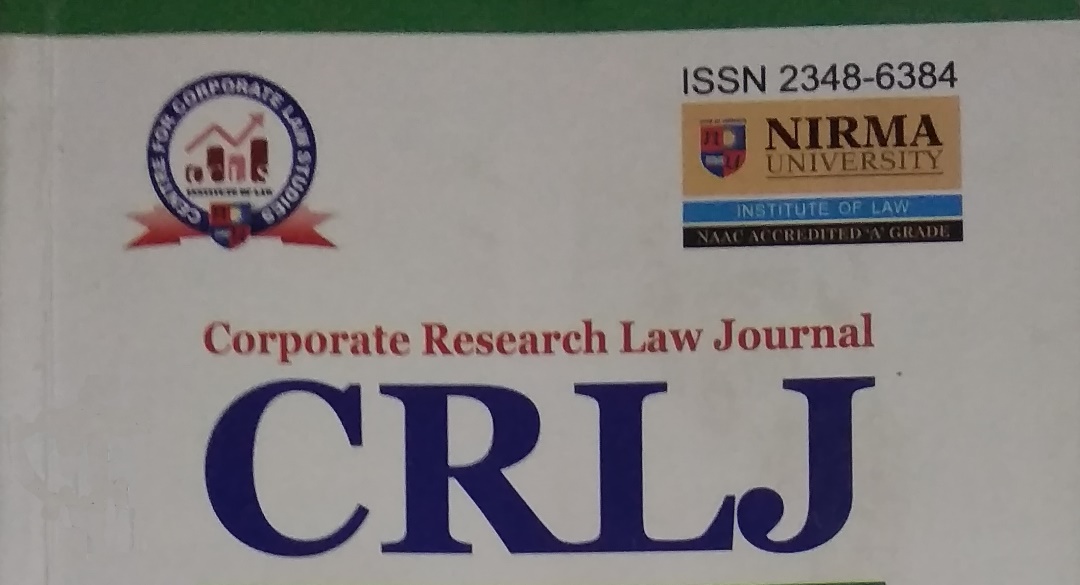
Centre for Corporate Research Law Journal (CRLJ), an open access, annual, peer reviewed journal is an initiative by Centre for Corporate Law Studies at Institute of Law, Nirma University. The intricacies of corporate world have grown manifold times with the developments taking place every hour at the national and international level. The globalization web requires corporate businesses to not just be limited to Company and its allied laws, rather have a holistic understanding from environmental, social and cultural level as well. The Centre has taken up several initiatives in the form of publications, debates and regular interactions to keep pace with this dynamic era.
The editorial board has decided that the Centre for Corporate Law Studies shall publish papers on the theme of:
Specific theme based special issues may also be published
In general, the journal will include
The Centre for Corporate Research law Journal, published by Institute of Law, Nirma University shall have specific objectives:
|
Constitution of Editorial Board |
|
| Prof. Lindsay Trotman Associate Professor of Law, Massey University New Zealand |
|
| Prof Dinesh Patel Professor, HoF University Germany |
Dr Risham Garg Associcate Professor, NLU-Delhi |
| Mr Pankaj Agrawal Partner, Shardul Amarchand Mangaldas & Co Ahmedabad |
Ms Sharda Balaji Founder NovoJuris Legal, Bangalore |
| Ms Mona Bhide Managing Partner, Dave & Girish & Co. Institute of Law, Nirma University |
Dr Rattan Singh University Institute of Legal Studies, Punjab University, Chandigarh |
| Mr Amit K Kashyap Assistant Professor, Institute of Law Nirma University |
Mr Yash Pandey Assistant Professor, Institute of Law Nirma University |
This journal provides immediate open access to its content on the principle that making research freely available to the public supports a greater global exchange of knowledge.